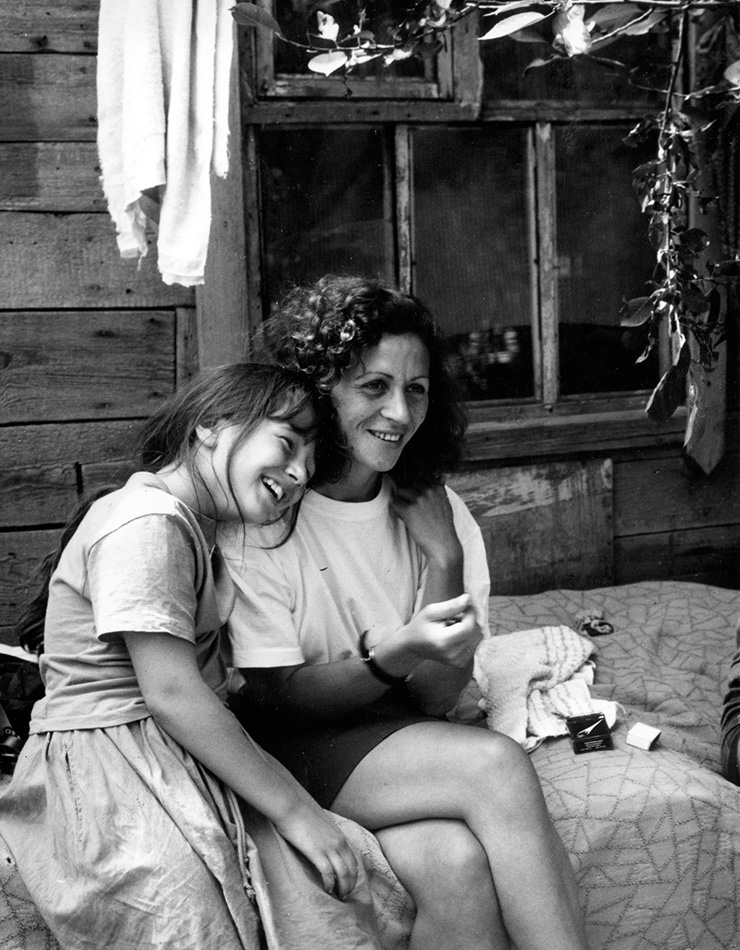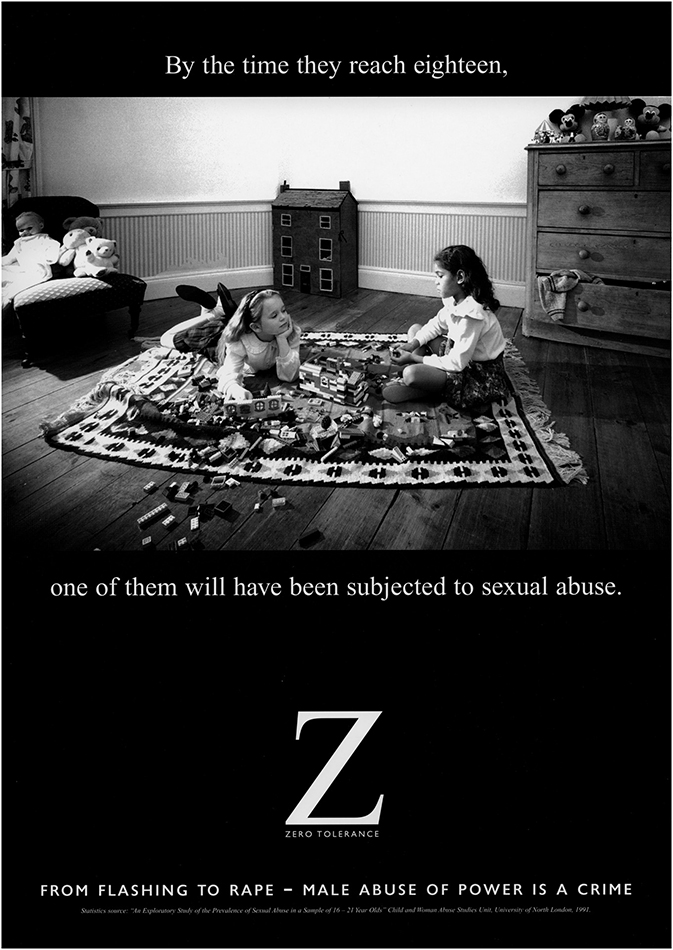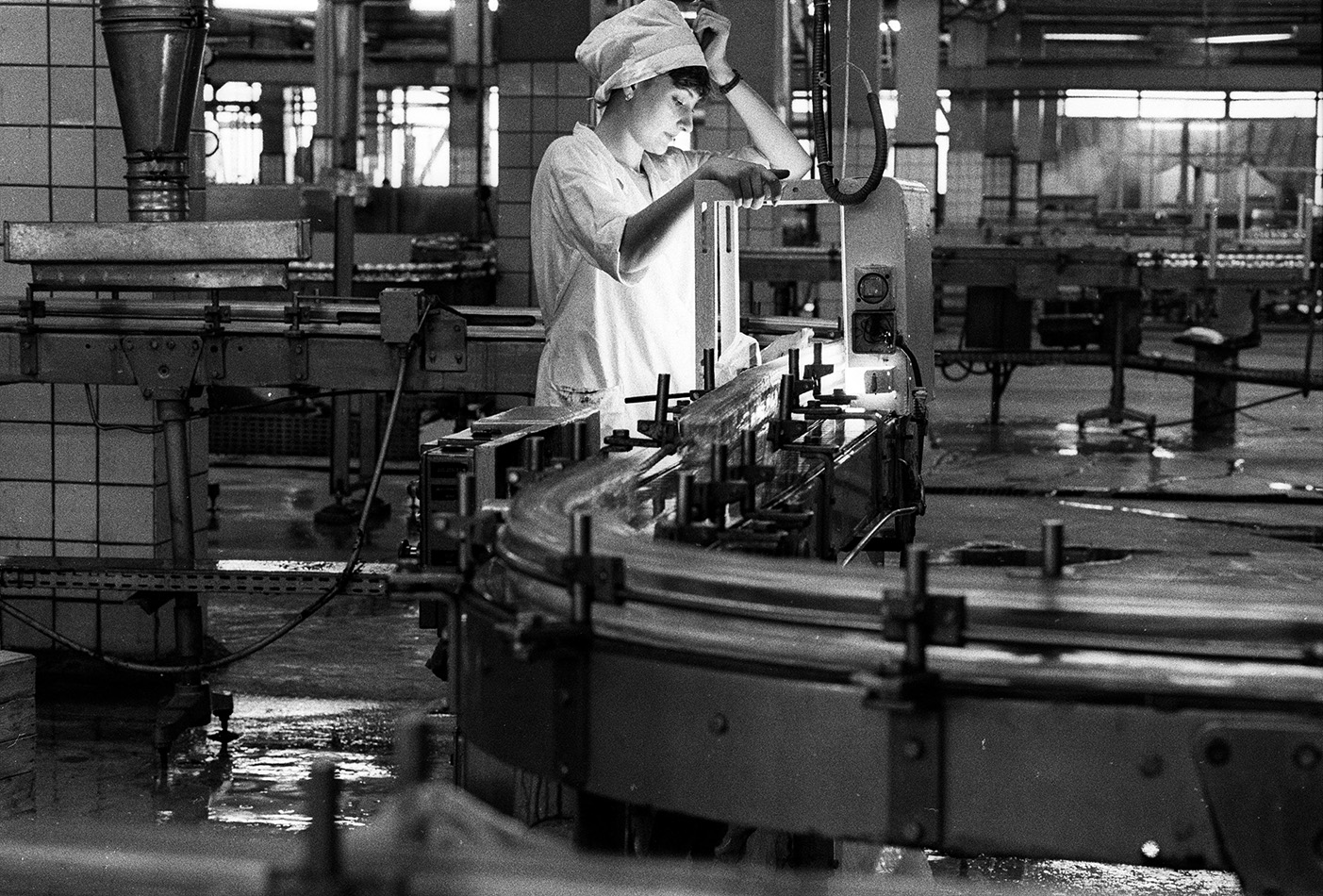Reading the Collections, Week 47: Celebrating Women: the Franki Raffles Photographic Collection

Born in Manchester and raised in London, Franki Raffles was an alumna of St Andrews University (MA in Moral Philosophy, 1977). After graduating she made her home in Scotland, first on the Isle of Lewis and later in Edinburgh, where she rapidly established herself as a leading feminist social documentary photographer. Franki’s desire to document a wide range of social, cultural, and political models led her to travel extensively, sometimes accompanied by one or more of her children, and during her final pregnancy she travelled to Israel to research and capture the lives of Jewish women who had left the old USSR to settle in Israel. Tragically, and poignantly, she passed away in 1994 at the age of 39, while giving birth to twin girls.
The Franki Raffles Feminist Social Documentary Collection consists of around 90,000 negatives with accompanying documentation and was generously gifted to the University in 2014 by the Franki Raffles Estate. Some of the main themes explored in this provoking body of work include: women’s life and work in the Hebrides, Shetland, Edinburgh, China, Tibet, India and the USSR; women of the Commonwealth Games; International Women’s Day; and the use of creative expression as an educational tool for children and adults with special needs in conjunction with the Scottish Association of Mental Health.
The powerful images used in the Zero Tolerance campaign, which highlighted awareness of domestic and sexual abuse against women, are also part of the collection. Originally produced in 1992 for Edinburgh District Council, in conjunction with many other groups including Scottish Women’s Aid and Rape Crisis, the images used for this highly successful campaign were subsequently adopted by many other local authorities throughout Scotland, the wider UK, and internationally.

I had the recent pleasure of working with a selection of images from the collection, taken in 1989, which depict the life of women in the former Soviet Union and provide a fascinating insight into the everyday life of women living under the communist regime. The negatives were digitised in collaboration with the École du Louvre, Paris as part of the University’s History of Photography programme and are now available to view online. These striking pictures are an exciting new addition to the Special Collections photographic digital archive and provide an enticing taster of Franki’s work.
![Soviet ice skating class, by Franki Raffles, 1989 [2014-4-105-10a]. ©Franki Raffles Estate](https://special-collections.wp.st-andrews.ac.uk/files/2016/02/3-soviet-ice-skating-class_1.jpg?w=470)
![Soviet women farm workers share a joke, by Franki Raffles, 1989 [2014-4-084-27a]. ©Franki Raffles Estate](http://special-collections.wp.st-andrews.ac.uk/files/2016/02/4-soviet-women-farm-workers-share-a-joke_1.jpg?w=300)

![Soviet woman statue, by Franki Raffles, 1989 [2014-4-053-18a]. ©Franki Raffles Estate](https://special-collections.wp.st-andrews.ac.uk/files/2016/02/6-soviet-woman-statue_1.jpg?w=470)
Lindsey Gray
Digitisation Officer
The Franki Raffles Collection came to the Special Collections Division through a collaboration between Dr Alistair Scott of Edinburgh Napier University, Sandy Lunan, and The University of St Andrews.
Dr Scott had known Franki since they were students together at St Andrews in the 1970s. He worked with the Franki Raffles Estate to bring together the entire archive of her photographic practice.
This joint partnership between Edinburgh Napier and St Andrews aims to promote access to this collection by opening it up to the public, students and researchers through online access. There have been several keen researchers accessing the collection already. More information will be accessible through the online catalogue as work progresses.
Rachel Nordstrom
Photographic Collections Manager, University of St Andrews
Dr Alistair Scott
Senior Lecturer, Edinburgh Napier University
[…] You can view our previous blog post about the Franki Raffles collection here. […]
[…] promote her work and to allow her material to reach a wider audience. Two recent blog articles from February and March have explored the life and work of Franki Raffles, including her contribution to […]
[…] have been featured on this blog previously: Elizabeth Garrett Anderson, Frances Helen Melville and Franki Raffles. The display will also highlight the work of St Andrews students in the Women’s Liberation […]